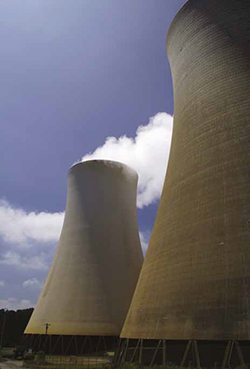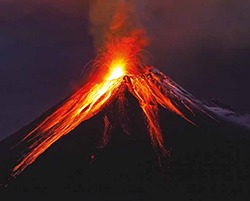
While advances continue to be made in our understanding of climate physics and the response of the climate system to increases in greenhouse gases, many uncertainties are likely to persist. The rate of future global warming depends on future emissions, feedback processes that dampen or reinforce disturbances to the climate system, and unpredictable natural influences on climate like volcanic eruptions. Uncertain processes that will affect how fast the world warms for a given emissions pathway are dominated by cloud formation, but also include water vapour and ice feedbacks, ocean circulation changes, and natural cycles of greenhouse gases. Although information from past climate changes largely corroborates model calculations, this is also uncertain due to inaccuracies in the data and potentially important factors about which we have incomplete information.
It is very difficult to tell in detail how climate change will affect individual locations, particularly with respect to rainfall. Even if a global change were broadly known, its regional expression would depend on detailed changes in wind patterns, ocean currents, plants, and soils.
The climate system can throw up surprises: abrupt climate transitions have occurred in Earth’s history, the timing and likelihood of which cannot generally be foreseen with confidence.

It is known that human activities since the industrial revolution have sharply increased greenhouse gas concentrations; these gases have a warming effect; warming has been observed; the calculated warming is comparable to the observed warming; and continued reliance on fossil fuels would lead to greater impacts in the future than if this were curtailed. This understanding represents the work of thousands of experts over more than a century, and is extremely unlikely to be altered by further discoveries.
Any action involves risk if its outcomes cannot be foreseen and the possibility of significant harm cannot be ruled out. Uncertainty about the climate system does not decrease risk associated with greenhouse gas emissions, because it works in both directions: climate change could prove to be less severe than current estimates, but could also prove to be worse.
Even if future changes from greenhouse gas emissions are at the low end of the expected range, a high-emissions pathway would still be enough to take the planet to temperatures it has not seen for many millions of years, well before humans evolved. In this situation, there can be no assurance that significant harm would not occur.

 by CSIRO Atmospheric Research
by CSIRO Atmospheric ResearchAll societies routinely make decisions to balance or minimise risk with only partial knowledge of how these risks will play out. This is true in defence, finance, the economy and many other areas. Societies have faced and made choices about asbestos, lead, CFCs, and tobacco. Although each case has unique aspects, all carried scientifically demonstrated but hard-to-quantify risks, and were contentious, in common with climate change.
Mechanisms have been put in place nationally and internationally to facilitate scientific input into decision making. In particular, the international Intergovernmental Panel on Climate Change (IPCC) has prepared thorough, ‘policy-neutral but policy-relevant’ assessments of the state of knowledge and uncertainties of the science since 1990, with the most recent assessment completed in 2014. Australian scientists have made a major contribution to the quality and integrity of these international IPCC assessments.
© 2026 Australian Academy of Science